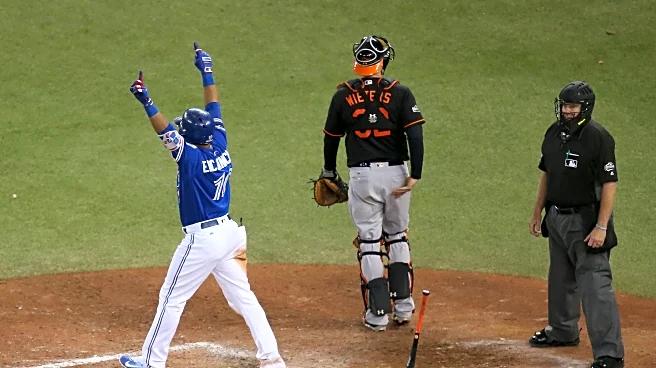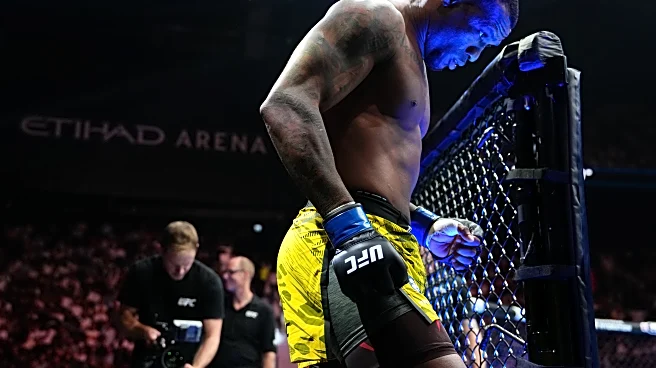What's Happening?
Jonathan Toews marked a significant milestone in his NHL comeback by recording his first point in nearly two and a half years during the Winnipeg Jets' 5-2 victory over the New York Islanders. Toews, who had been absent from the league due to health issues related to chronic immune response syndrome and long COVID-19, assisted on Nino Niederreiter's power-play goal. This game was Toews' third of the season, and he expressed relief at contributing to the team's success. Toews, a former captain of the Chicago Blackhawks, chose to return to his hometown team, the Winnipeg Jets, and is gradually regaining his form, averaging over 17 minutes of ice time as the Jets' second-line center.
Why It's Important?
Toews' return to the NHL is significant not only for his personal career but also for the Winnipeg Jets, who benefit from his leadership and experience. As a three-time Stanley Cup champion and former Conn Smythe Trophy winner, Toews brings a wealth of experience to the team. His comeback is a testament to his resilience and determination to overcome health challenges. For the Jets, having a player of Toews' caliber can enhance team dynamics and performance, potentially boosting their chances in the league. Additionally, Toews' return is a positive narrative for the NHL, showcasing the league's ability to support players through health challenges and their subsequent return to professional play.
What's Next?
Looking ahead, Toews aims to continue improving his performance and hopes to contribute significantly to the Jets' success. There is also the possibility of Toews making a bid for Canada's Olympic team in the upcoming Games in Milan, as NHL players return to the Olympics. His progress will be closely watched by fans and analysts, as he seeks to help the Jets achieve their first Stanley Cup victory. The team will continue to manage his ice time carefully to ensure his health and performance remain optimal.
Beyond the Headlines
Toews' comeback highlights broader themes of resilience and the importance of mental and physical health in professional sports. His journey may inspire other athletes facing similar challenges, emphasizing the significance of support systems and medical advancements in sports. The narrative also underscores the evolving understanding of long COVID-19 and its impact on athletes, potentially influencing future health policies within sports organizations.









